Travel Logistics for a Kenya Safari: What You Need to Know
Going on a Kenya safari is a dream for many people. Nothing warms our hearts more than seeing the excited faces of our guests, despite the long flights, finally arriving to fulfill their dream of exploring Africa’s wild places. To make that journey smooth, it helps to understand the basics before you arrive. From flights and visas to packing and how safaris work, here’s our guide to help you prepare with confidence.
Getting to Kenya
Most of our guests — especially those traveling from the US, Europe, and Asia — fly into Jomo Kenyatta International Airport (NBO) in Nairobi, the main entry point, or Moi International Airport (MBA) in Mombasa if they’re heading to the coast. International flights aren’t included in our safari packages, so you’ll need to arrange these separately.
From Nairobi, most of our safaris begin with a scenic road transfer or a short domestic flight to popular parks like the Masai Mara, Amboseli, or Tsavo. Some of our guests love the drives because they pass through towns and countryside, while others prefer the speed and comfort of a bush flight — especially families with kids or travelers with elders. We’ll help you decide which is right for you.mmend it for travelers who want to compare what each safari level includes — or who simply prefer to save on accommodation while still enjoying the full wildlife experience.
Passport & Visa Requirements
Arrival Checks – Immigration officers may ask for proof of onward travel or a return ticket. Having printed copies makes the process smoother.
Passport Validity – Make sure your passport is valid for at least 6 months beyond your departure from Africa.
Kenya eVisa – Most travelers need an eVisa, which you can apply for online via the official Kenya eVisa portal. We always recommend applying 2–3 weeks before your trip.
Health & Travel Insurance
We strongly recommend all our guests have travel insurance to cover medical emergencies, delays, or cancellations.
Before you travel, check with your doctor about vaccinations. Yellow fever is required if you’re coming from certain countries, and other commonly recommended vaccines include Typhoid, Polio, Tetanus, Meningitis, and Hepatitis A. Malaria is present in many regions, so we advise speaking with your doctor about prophylactics.
We also encourage carrying insect repellent (50% DEET works well) and wearing long sleeves in the evening. It’s simple steps like these that make your safari more comfortable.luxury safaris often tell us it’s not just a trip — it feels like a private retreat in the wild.
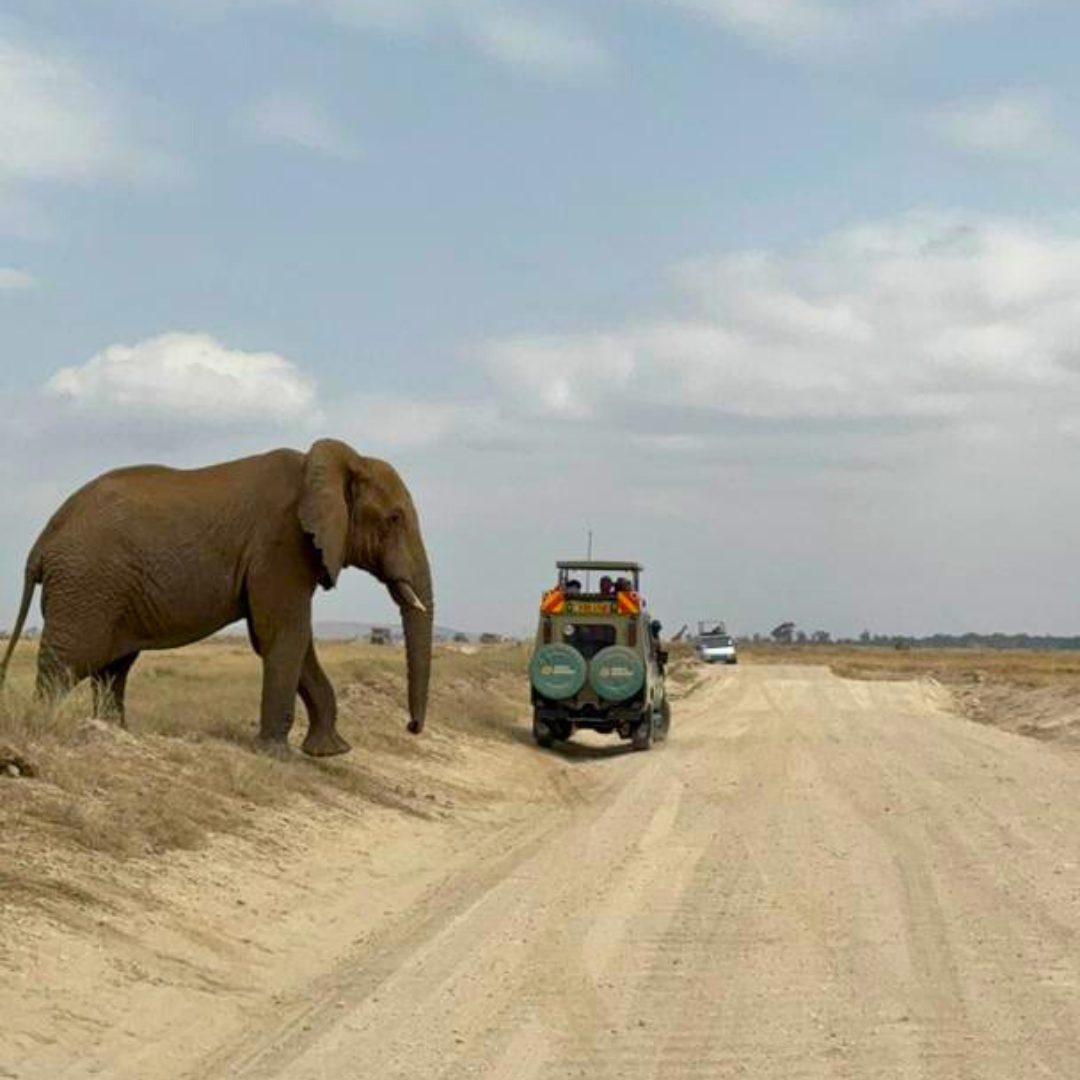
How Safaris Work
A Kenya safari follows a rhythm designed to give you the best wildlife viewing. In our safaris, here’s what to expect:
- Morning Game Drives – We pick up our guests before sunrise with tea, coffee, and snacks to go. This is when predators like lions and leopards are most active.
- Afternoon Game Drives – Usually start around 3–4 pm, lasting until sunset. It’s the best time for elephants, giraffes, and grazing herds.
- Lodges & Camps – Between drives, you’ll relax at your lodge or tented camp. Depending on your package, this could be a cozy eco-lodge, a comfortable tented camp, or a luxury retreat with views across the savannah.
- Travel Between Parks – Some safaris involve long road transfers between reserves. While they take time, we see them as part of the adventure — offering glimpses of local towns and rural life. If you’d prefer shorter journeys, we’ll happily arrange domestic flights to parks like the Masai Mara.
Packing List Essentials
We’ve seen firsthand that good packing makes safaris easier and more enjoyable. Here’s what we recommend:
- Soft Bags – Suitcases don’t fit well in safari vehicles. Use soft duffel bags, especially if you’re flying domestically (luggage allowance is usually 15kg).
- Neutral Clothing – Khaki, beige, and olive colors work best in the bush.
- Layers – Early mornings can be cold, afternoons warm. Pack sweaters or fleeces for dawn drives and light shirts for the day.
- Evening Protection – Long sleeves and trousers help prevent mosquito bites.
- Footwear – Closed shoes for walks, sandals for evenings.
- Sun Protection – Hat, sunglasses, sunscreen, and lip balm.
- Equipment – Camera with zoom lens, binoculars, spare batteries, and memory cards.
- Personal Items – Medicines, toiletries, and essentials you may not find outside Nairobi.
Customs & Local Guidelines
We always brief our guests on Kenya’s travel guidelines:
Plastic Bags – Non-reusable plastic bags are banned; bring reusable alternatives.
Drones – Require government permits, so check in advance.
Duty-Free Allowances – 1 bottle of spirits/wine and 200 cigarettes per traveler.
Photography – Always ask before photographing people; wildlife photos are free, but silence and respect are key on drives.
Money & Extra Expenses
Extras – Balloon safaris, cultural visits, or laundry services are additional costs. We’ll always let you know upfront what’s included.oint.
Currency – The Kenyan Shilling is local, but US dollars are widely accepted. (Bring post-2000 bills in good condition.)
Cards & ATMs – Available in cities, but not always reliable in remote areas.
Tipping – While optional, most of our guests choose to tip their driver-guide around $10–$15 per day, per group. Lodge staff usually share a communal tip box.
Extra Travel Tips for First-Timers
Safety – Always follow your guide’s instructions. We remind guests to stay inside the vehicle during game drives for everyone’s safety.
Book Early – Especially during the Great Migration (July–October) when Masai Mara lodges fill quickly.
Internet & Power – Most lodges have Wi-Fi, but it may be slow. Some camps run on solar or generators, so bring a power bank.
Cultural Etiquette – Greeting locals and respecting Maasai or Samburu traditions makes your trip more meaningful.
Frequently Asked Questions (FAQ)
1. How many days should I spend on safari?
Most of our guests spend 5–7 days, combining at least two parks — for example, Masai Mara + Amboseli.
2. Do I need travel insurance?
Yes. It’s highly recommended and gives peace of mind.
3. Is it safe to drink tap water in Kenya?
No, we always provide bottled or filtered water for our guests.
4. Can I charge my phone and camera during safari?
Yes, but power can be limited in some camps. We advise bringing a power bank.
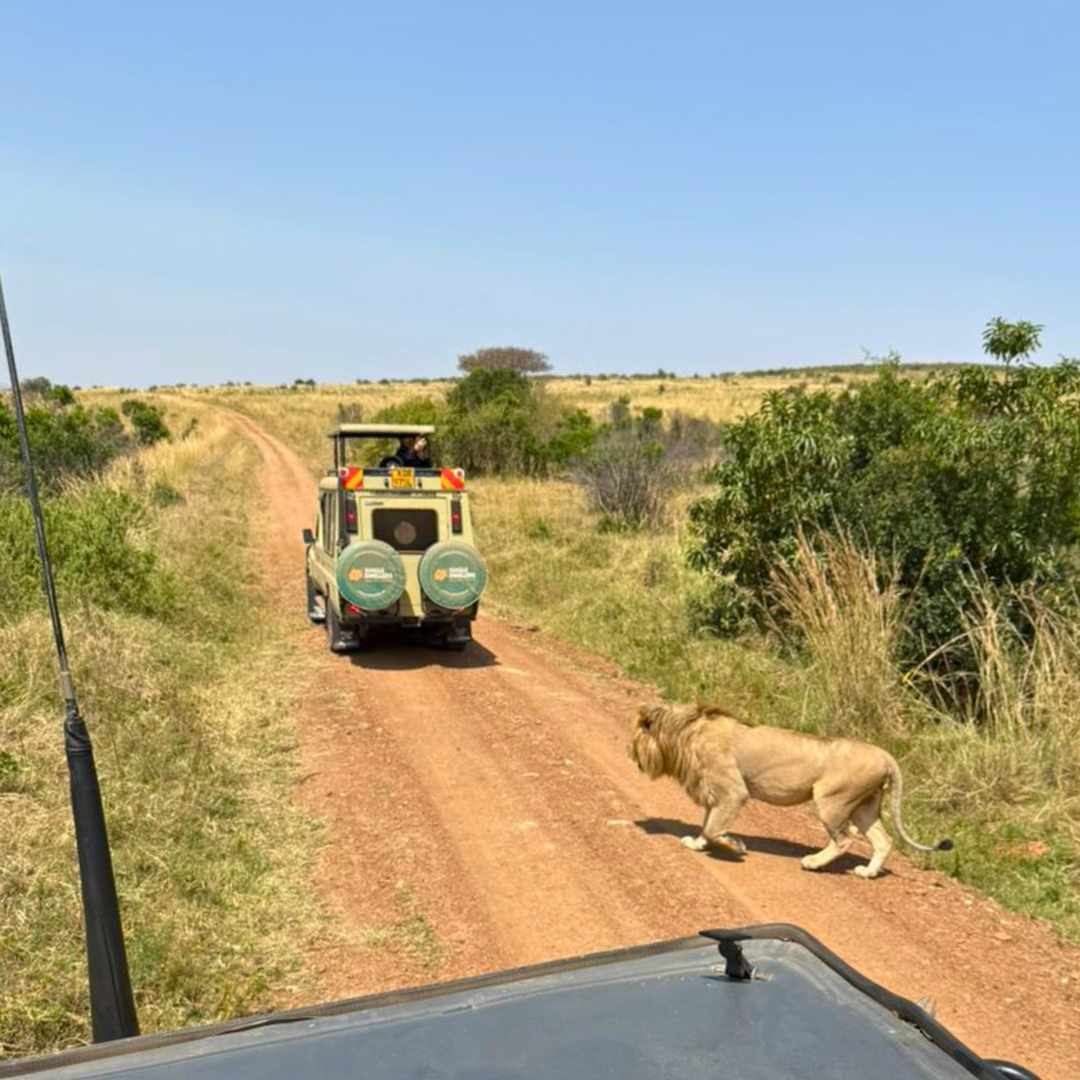
Final Thought
Planning the details of your safari may feel overwhelming at first, but that’s why we guide our guests every step of the way. From booking flights and applying for your visa to packing and preparing for game drives, good planning makes everything stress-free.
Once you arrive, you’ll see why Kenya is one of the world’s best safari destinations — full of wildlife, landscapes, and unforgettable moments. For us at Jungle Dwellers, nothing is more rewarding than watching our guests experience it all for the very first time.
Related Blogs
October 8, 2025
October 8, 2025
Related Safaris
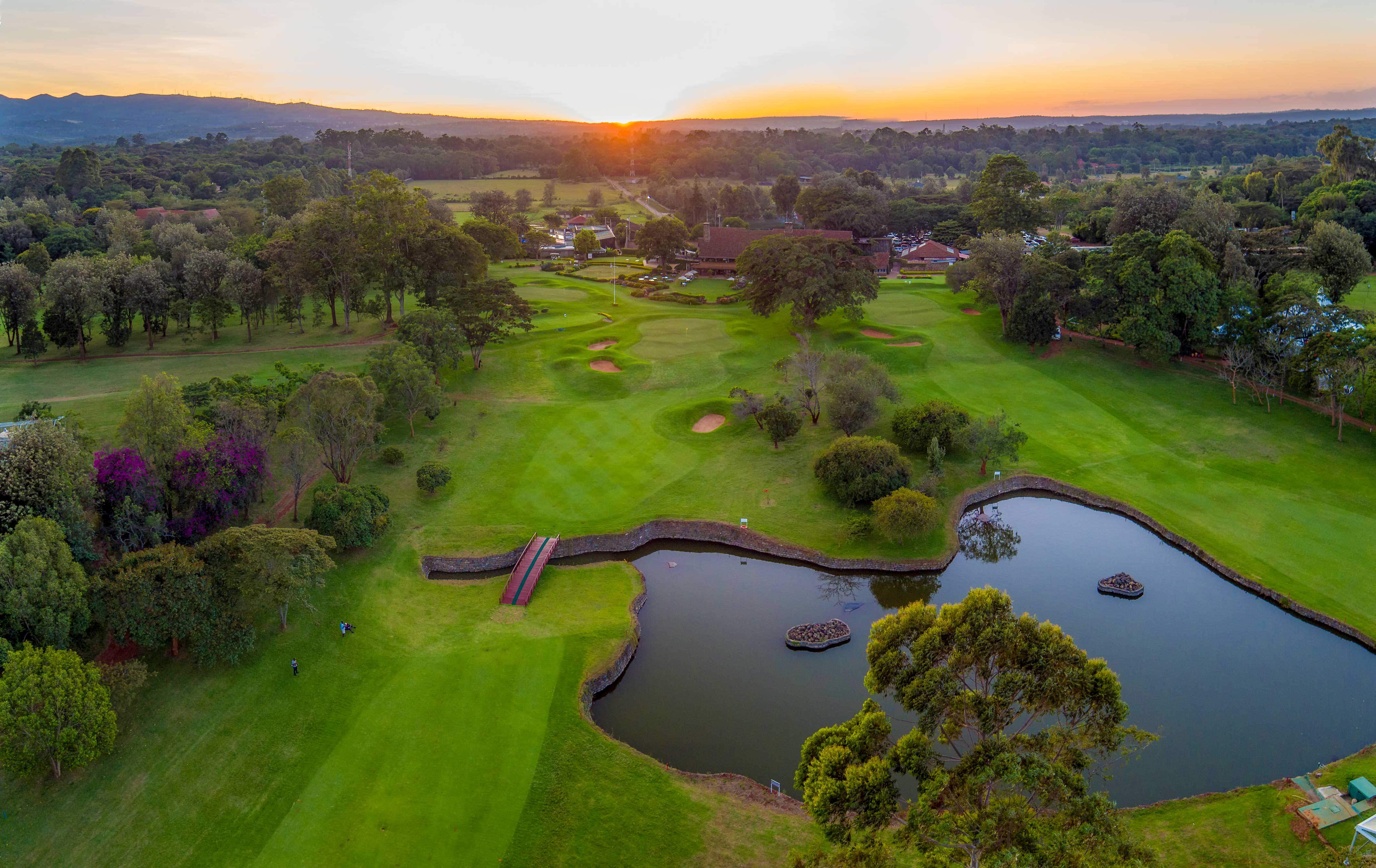
From $2640
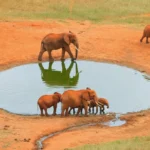
From $2946
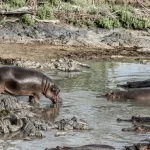
From $1740